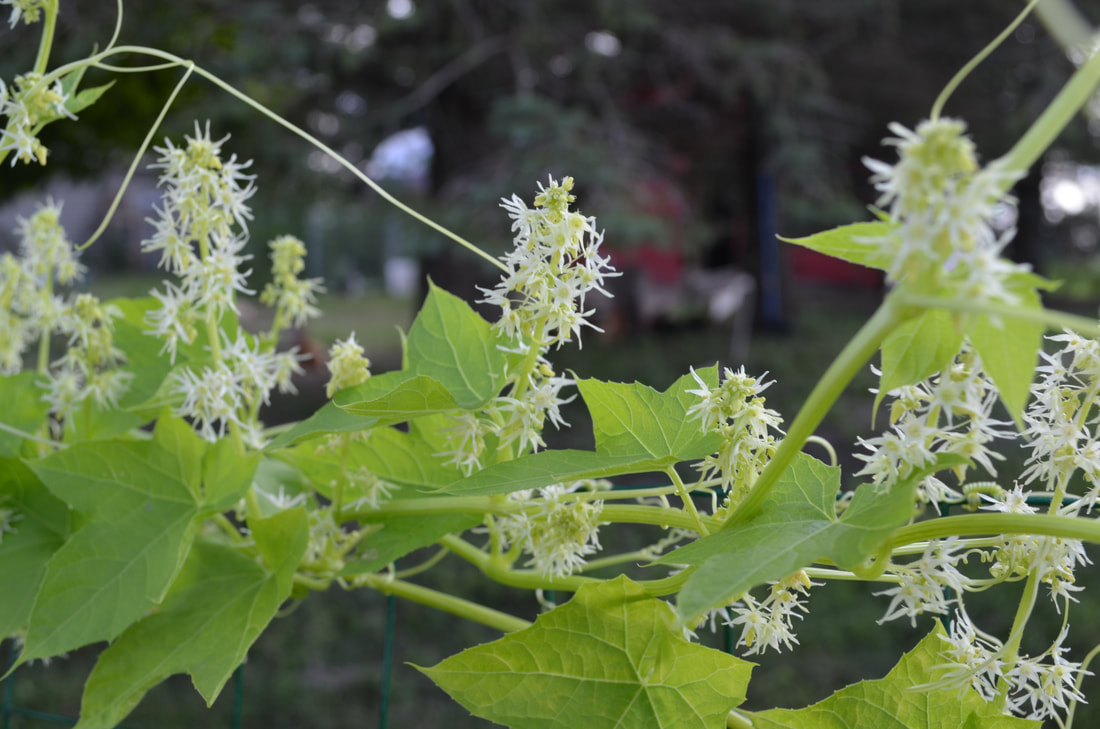"Of all I've learned, I learned the most how much I have left to learn." I've been spending a lot of time doing squats lately. I read an article about a month ago that the size of our hippocampus (the part of our brain where memories are stored) is directly related to the size of our leg muscles. While the article was centered around ways to avoid memory-related diseases and disorders, I took it to heart that if I wanted to retain all that I had learned recently, and all the information I will continue to gather going forward, I better hit the gym. Since I have been spending the month of September sharing stories about my experiences with essential oils, and now September is all but a memory itself, I thought I would wrap this up with a few of the things I have learned that have stayed with me. This information is coming directly from my memory of articles and studies I have read, and, I will share my sources as I recall them. I encourage you to do your own research on these topics as you travel through your personal essential oil adventure. Essential Oils and the "Grading System" Walk into a grocery store and you'll see reference to "grades" all around you. Grade A beef, for example, refers to a high mark given by the USDA to let you know that beef has been inspected and approved as good quality for consumption. Look around at your essential oils, and you will see the term "Therapeutic Grade" all over the labels (including ours...for now). Some companies have even trademarked this grading system, creating a false certification, and false security. The truth is, essential oils in this country are not regulated, and nobody is grading them. The term "Therapeutic Grade" is actually one that is only there as a way to market oils as high quality, but doesn't actually mean anything. After reading many articles published by the National Association of Holistic Aromatherapy (NAHA), which is one of the most well-respected professional organizations overseeing this otherwise unregulated field of study, it became clear to me that it is not possible to use this verbiage to detect actual quality of oils. It is important to try many different brands, and locate companies you trust to know that their oils are pure. And even pure doesn't mean high quality. The quality of oils has much to do with when, where and how they are grown and harvested, even down to the time of day. From there, we have to take into account the distilling process, environment, and experience of the distiller. And even after all that, we are still subject to low quality oils if they are not stored in the proper containers or temperatures. It can be daunting. Because of this information, we will no longer be putting "therapeutic grade" on any of our labels or descriptions. Our distiller does not use the term, because they know it does not mean anything. This change may not been seen immediately, as I hate to waste anything, including labels that have already been printed, but the shift will be taking place. Botanical Names Matter Through my yoga studies, I spend a fair amount of time trying to learn the Sanskrit names of poses (asanas). Come to one of my classes and you'll see I almost never throw those out, as I don't want to get them wrong, and, in all honesty, I just don't know very many off the top of my head. I get by saying "Mountain Pose" instead of "Tadasana", and being able to be there and demonstrate what that looks like is helpful. It's a similar situation with essential oils, I have learned. It's fine to know the common name for Peppermint, for example, but if you are looking for a specific kind, or something from a specific area, it can be helpful to know the botanical name. Lavender and Frankincense are both really good examples of oils that will vary in scent based off the botanical name. Generally the botanical name references a specific species, or plant the oil comes from. The English Lavender plant (Lavandula angustifolia) is one of the most common lavenders used because of it's intense floral scent, but the Bulgarian Lavender (Lavandula vera) is the one most used by professional aromatherapists. The scent varies greatly between these two, as does the price. Frankincense has been one of my favorites to study, as there are several varieties of the Boswellia tree, all which produce Frankincense essential oil from the resin. The most commonly offered Frankincense on the market is Boswellia Carterii, having a smooth, relaxing aroma. We use the oldest documented Frankincense, Boswellia Serrata, because it is most often cultivated wildly from areas in India generally undisturbed by conventional farming, and the resin from this species produces the most oil, making it the most affordable. The oils from the different trees have slightly different aromas, but carry many of the same therapeutic benefits. Because we use Frankincense in many of our products and blends, it is important for us to find the most cost-effective variety, that still creates a high-quality oil. I have learned that knowing the botanical names is the best way to make sure you are getting what you want in the scent and origin, and to help decipher why pricing may vary so much from one oil to another, even when they have the same common name. Get Educated Before You Ingest Contrary to popular belief, essential oils are safe to ingest. Contrary to popular belief, essential oils are NOT safe to ingest. I get asked whether our oils can be ingested all the time, and I honestly think most of the time it's a way for people to determine if the oils we offer are the same quality they believe companies like Young Living and DoTerra offer. I say this because I am well aware that these companies advise it is safe to consume their oils because they are so pure. I have spent numerous hours studying this topic from all angles so I can advise my customers in the most educated, responsible way. There is a lot of controversy in the aromatherapy community about this topic, and I think facts and common sense should always prevail. It is a fact that with long-term, undiluted use, ingesting essential oils can cause problems with burning of the esophagus and can cause liver damage. Putting a drop or 2 of citrus oil in your drinking water is considered undiluted, because the oil and water never mix. It is actually safer and better for your body's pH level to ingest lemon juice, and ingesting lemon oil does not have any additional benefit to the body. Some oils should never be ingested. Oils should not be ingested daily for a long period of time. To use essential oils to combat symptoms of sickness by ingesting them could be beneficial, but only do so under the supervision of a qualified aromatherapy professional. Oils are most beneficial to the body when inhaled or used topically. Advising a consumer to ingest oils is not a qualification to how pure the oils are. In fact, the more pure the oils, the more careful one should be about ingesting them. There are safe ways to consume and even cook with oils, and it is advisable to do this only once fully educated on the risks and benefits by someone who is qualified to guide the process. I have loved sharing this part of my journey. Of all I've learned, I learned the most how much I have left to learn. As a self-proclaimed creative type, turning into the sciency type has not been easy. I thought I could slide through this industry as a creative professional, making pretty things that smelled nice, having a blast doing it, and fitting a puzzle piece into the big picture of the natural, homestead life I love. The creative makes it fun, but the science makes it meaningful. A happily balanced nerdy artist emerges.
1 Comment
|
AuthorsCategories |


 RSS Feed
RSS Feed